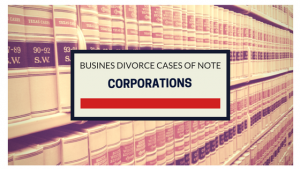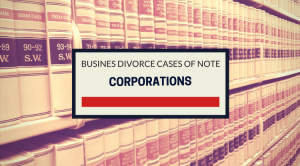-
The controlling shareholders of a corporation owe fiduciary duties to the minority shareholders by virtue of their ability to control the affairs of the company.
-
Even when a merger complies with statutory requirements, where it benefits the controlling shareholders and does not have an apparent business purpose, it must also satisfy equitable principles of fairness.
- The fiduciary duties owed by controlling shareholders is a basis to grant injunctive relief, even it is appears that money damages might make the minority shareholders whole for any misconduct.

Berkowitz v. Power/Mate Corp., 135 N.J. Super. 36 (Chancery Division 1975)
Statute: NJSA 14:14-1(1)(a)
Synopsis: In class action seeking injunctive relief blocking merger of defendant Power/Mate with corporation controlled by the majority shareholders, on application for a preliminary injunction, the court enjoined a going-private merger by the defendant controlling shareholders to compel the sale by the minority shareholders to a corporation they controlled. Held that despite compliance with statutory requirements, the merger would be preliminarily enjoined. See opinion Berkowitz v. Power/Mate Corporation. Continue reading
 The Business Divorce Law Report
The Business Divorce Law Report



 A retiring member of a limited liability company was unable to convince a trial judge that the parties had amended the operating agreement through their course of conduct to adopt a new valuation approach.
A retiring member of a limited liability company was unable to convince a trial judge that the parties had amended the operating agreement through their course of conduct to adopt a new valuation approach. No one gets married expecting to get divorced. And no one forms a business expecting that it will fall apart. Just as people get divorced, many businesses come to the point at which a business divorce is the best alternative because the partners cannot, or will not, continue to work together. When that happens, the parties need to restructure, and often separate, their business interests.
No one gets married expecting to get divorced. And no one forms a business expecting that it will fall apart. Just as people get divorced, many businesses come to the point at which a business divorce is the best alternative because the partners cannot, or will not, continue to work together. When that happens, the parties need to restructure, and often separate, their business interests.




